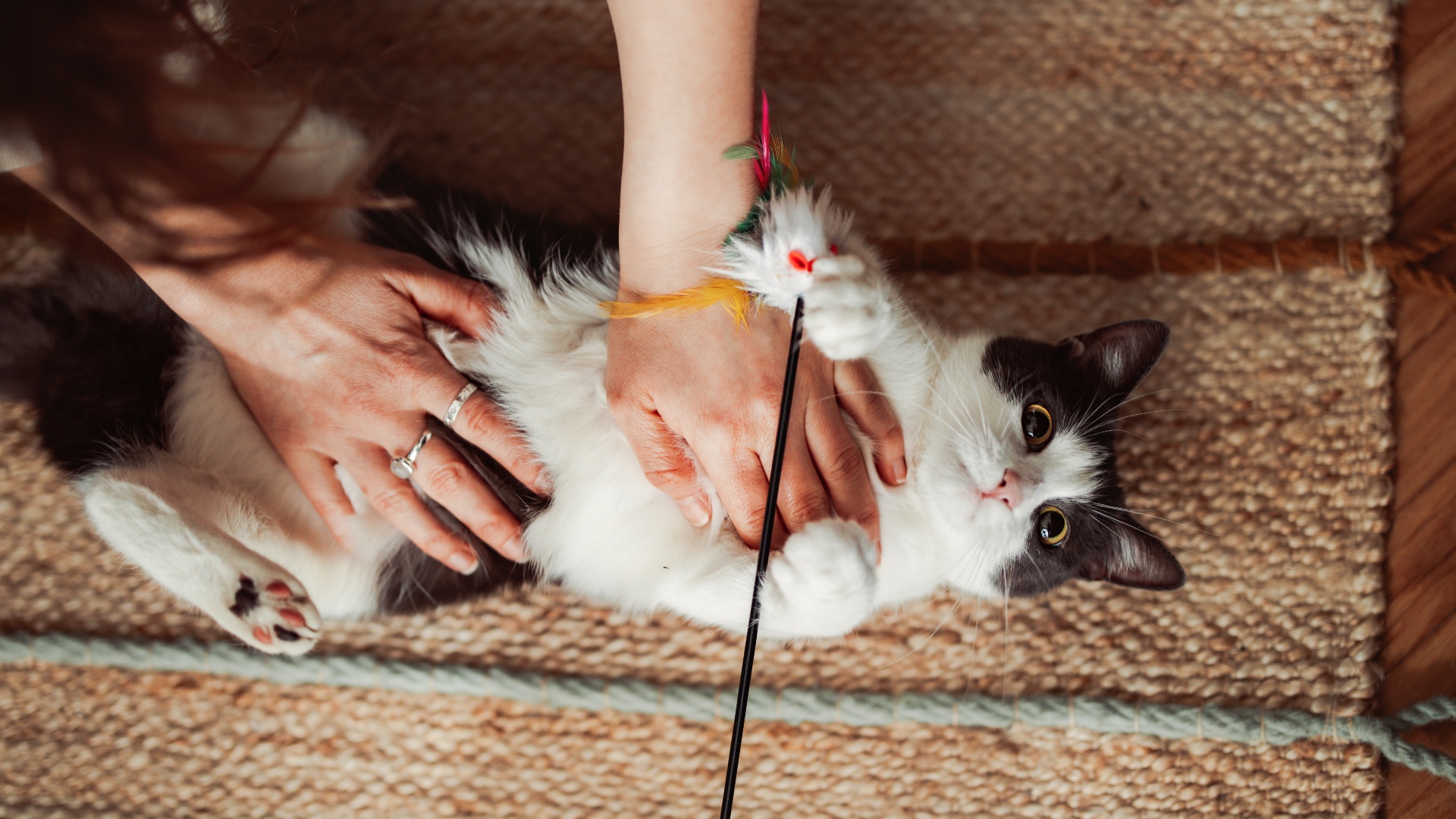
Trying to figure out how to stop cat play aggression is high on the list of priorities for a lot of feline pet parents and it's not hard to see why — there's nothing more frustrating (or painful!) than having your kitty bite or scratch you when you're trying to have fun with them.
The good news is that learning how to play with a cat correctly can be a great place to start when it comes to eliminating play aggression.
To help you do just that, registered vet technician and certified cat behavior consultant, Tabitha Kucera, has compiled a handy list of dos and don'ts that will help you react appropriately to any biting or scratching that occurs during play.
"Your response to an attack from your cat can determine if the attack escalates or ends, and if the behavior will improve or worsen. Consistency is important," Kucera explains.
Check out her full Instagram post below or read on for a summary of her 10 top tips for how to react to a playfully aggressive attack...
1. DO stop all play and calmly withdraw from your cat. It's important your feline friend knows that any kind of attack stops play.
2. DON'T react with a quick jerk away from the cat. "This is how prey responds to an attack and this can trigger continuing aggression," explains Kucera.
3. DO redirect your cat to appropriate toys. "Use fetch toys or toys on a stick to keep the cat away from you. If you have a common area your cat ambushes and attacks, place a basket of toys there so it is easily accessible to you, then toss the toy in front of you prior to walking past common ambush areas," Kucera advises. Check out our guide to the best cat toys for a range of great options.
4. DON'T use punishment. This includes yelling, spraying with water, grabbing, and hitting. "Punishment should be avoided because it will escalate the cats behavior, often resulting in aggression. Punishment does not teach the cat the wanted behavior, can cause fear and anxiety, and can break the human-animal bond"
5. DO provide interactive play at least twice a day. "Preferably morning and evening hours," Kucera recommends. "Stick to a regular play routine so your cat has appropriate outlets for play and plenty of exercise. Also, leave toys that your cat can play with alone. Try to vary them regularly to ease boredom."
6. DON'T have a big reaction. "Screaming and jumping may make the cat think you just attacked them back, which could increase the aggression."
7. DO learn to recognize the early signs of play aggression. Things like dilated pupils, hiding around corners, and crouching are all key signs. Redirect your cat immediately when you notice these.
8. DON'T put your cat in a 'time out'. Confining your feline friend to one room when they bite or scratch you doesn't work — and you also increase your risk of finding yourself on the other end of these behaviors if you try to pick them up when they're in this space.
9. DO offer your cat more mental stimulation. Use clicker training, harness walks, cat puzzle feeders, and rotate toys for variety.
10. DON'T react in anger. "This can cause fearfulness and stress in your cat," Kucera explains. "It can also escalate the attack and will certainly not improve the behavior."
If your cat's behavior during play continues to concern you after following the above tips, we recommend reaching out to a qualified behaviorist who will be able to offer advice and guidance.







